Game of Thrones: social media analysis
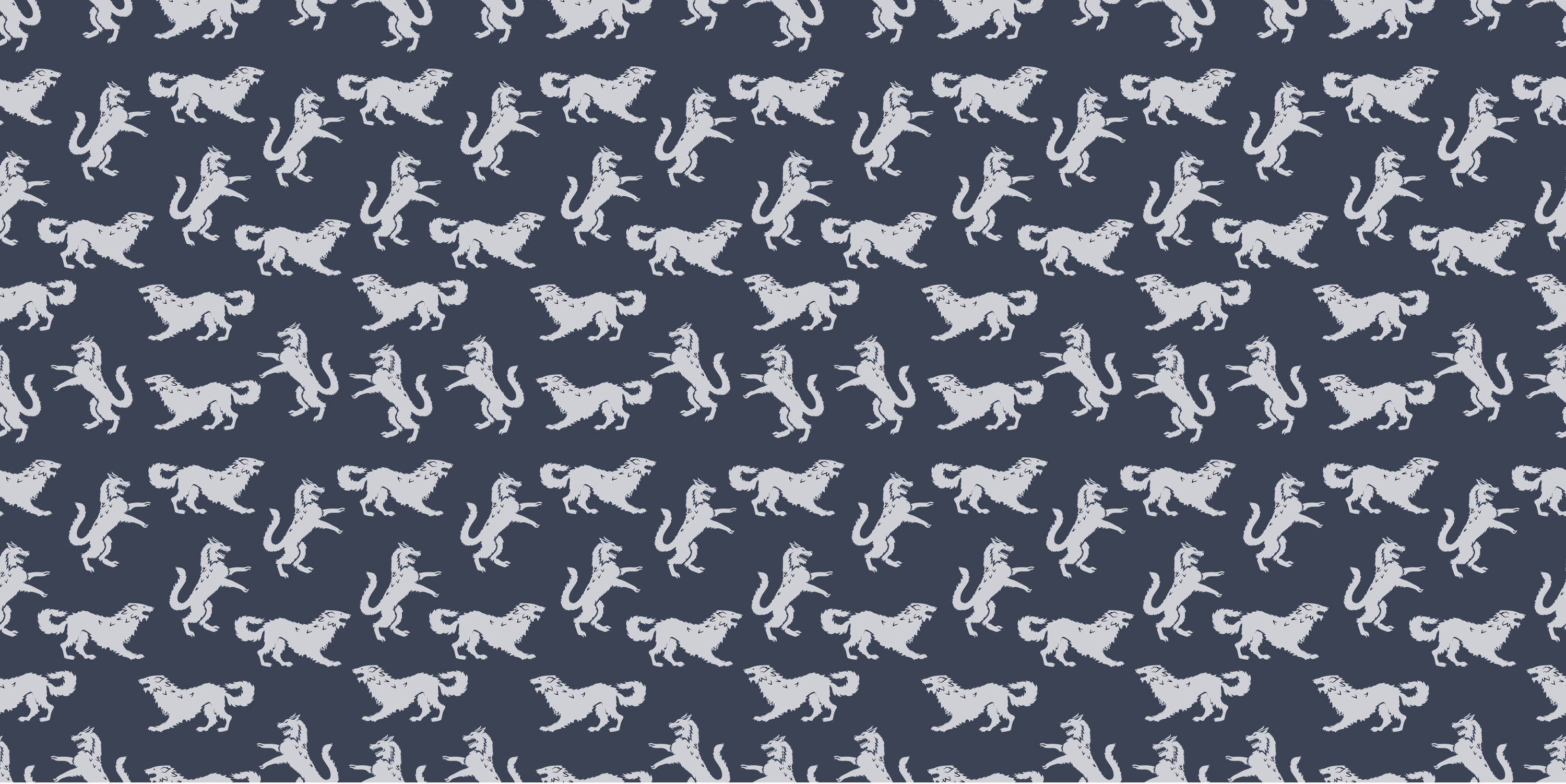
Note: this post contains spoilers. If you feel like looking at the big data results without finding out how GoT ends, read about Brexit or Slack's new logo.
Game of Thrones has been on air since 2011. The fact that it is over is a big deal. I mean, at the start of the series the cast looked like this:
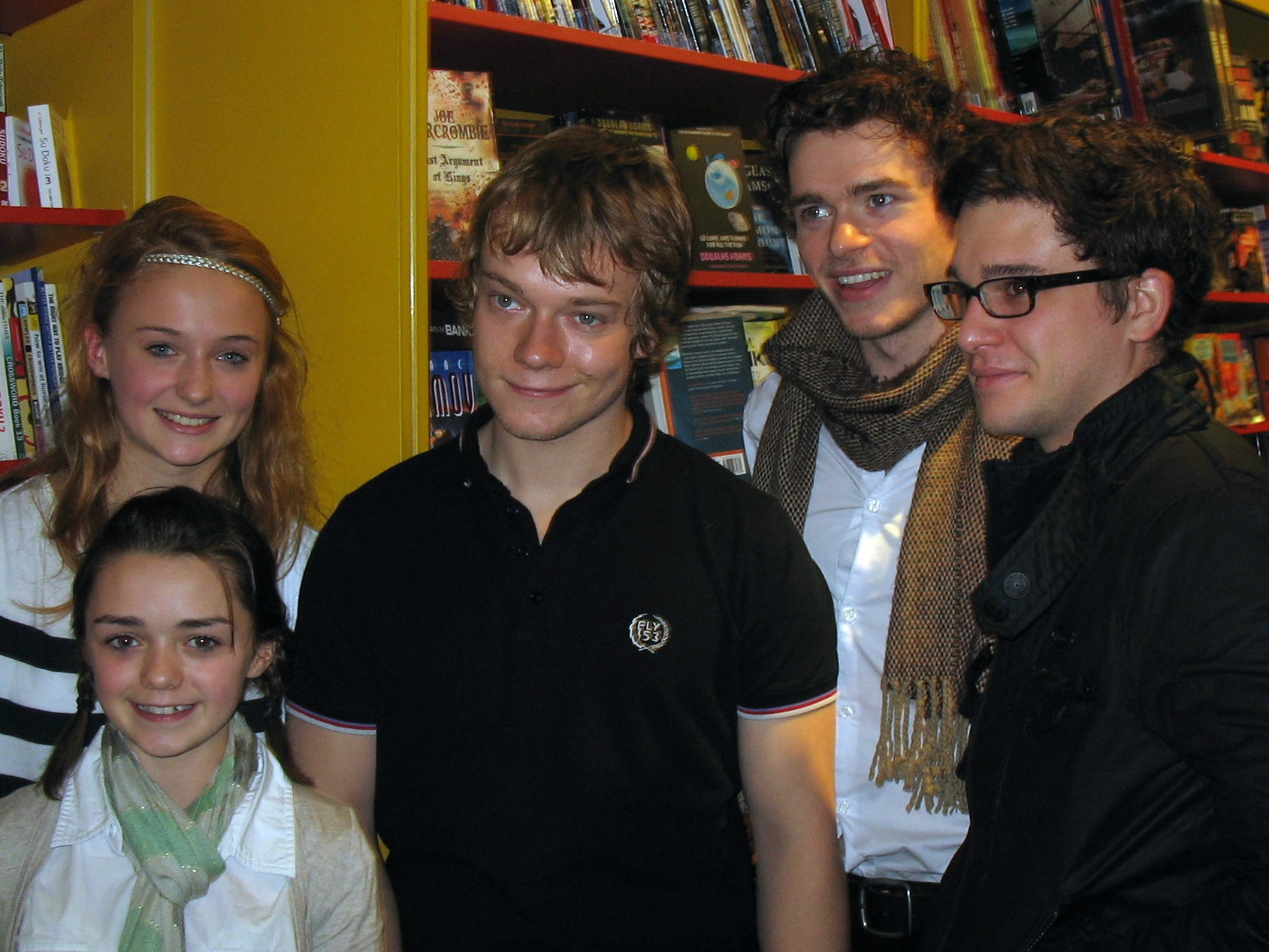
And this season the tiniest girl from the photo killed the Night King, had an inevitable sex scene, and made dozens of actors that portrayed Death before her jealous.
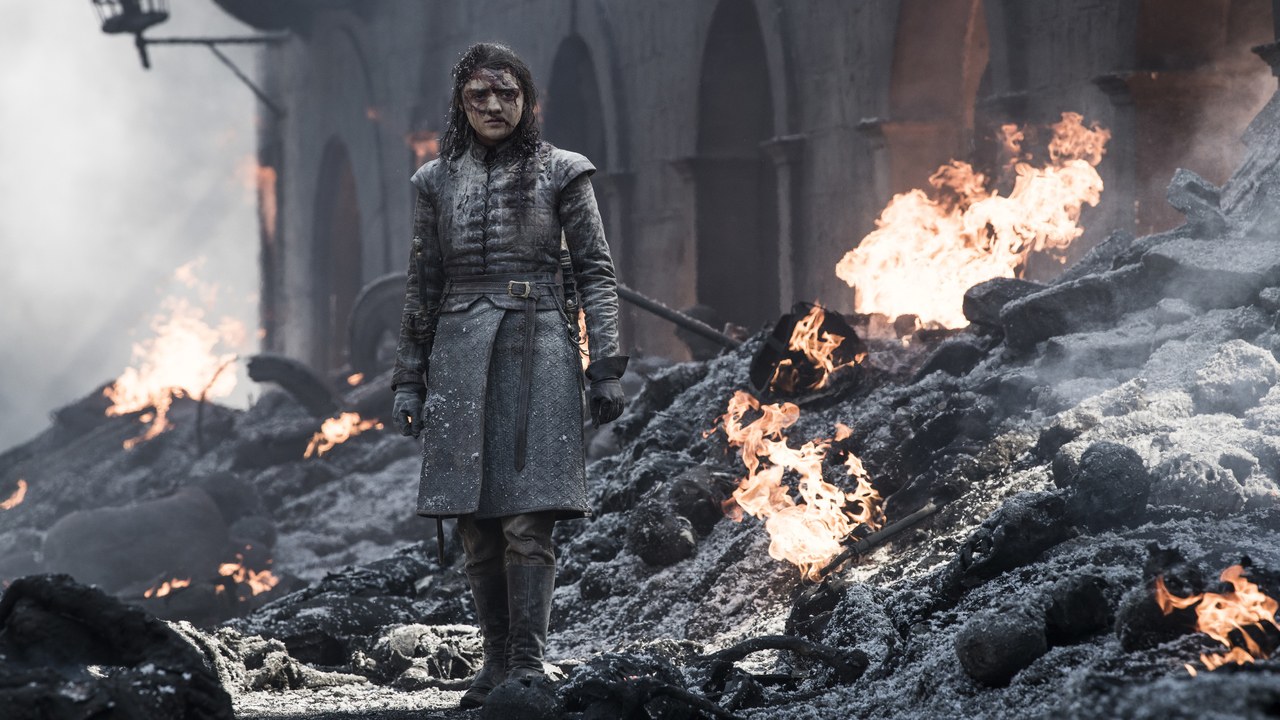
It's hard to overlook that social media has been talking about the series. Hell, it's the only thing social media has been talking about for the past month! GoT hashtags have been trending on Twitter non-stop, Reddit made their own Iron Throne vote that included hundreds of thousands of people (Jon won). We saw petitions, endless YouTube clips, a spike in HBO cancellations...
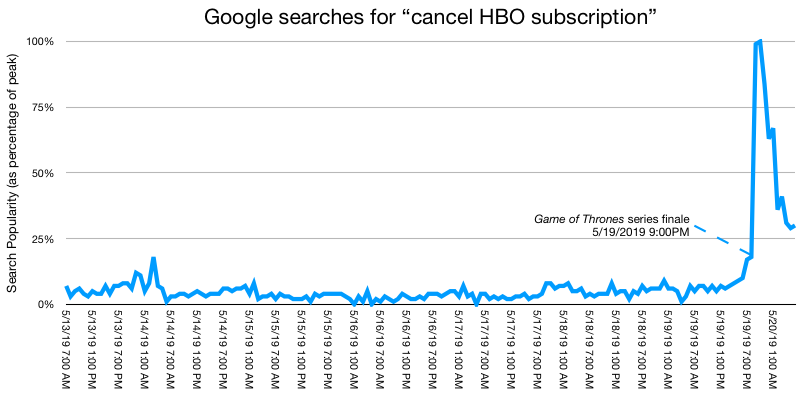
People's and companies' lives have changed with the Game of Thrones final season.
And we decided not to fall behind and analyze the data behind the series. The number of social media mentions was huge: almost 500k in a month that we monitored social media for mentions of "Game of Thrones"/"GoT". It's this kind of big data that lets you see the overall reaction to the show, as opposed to just the loudest and most active speakers.
Here's how the conversation went:

The number of mentions peaks at each episode and rises even higher at the finale.
And here's the sentiment behind each episode:

As you can see, despite the backlash that the last season caused, positive mentions still outnumbered negative ones. Although truth be told, it's still a lot of negativity for the most watched TV show in the world.
We can see from the graph that people seem to be more or less fine with the finale of the show, and they actually liked the most anticipated episode of the season, The Long Night, which aired on April, 28th. There was an interesting reaction to the most shocking episode of the series, The Bells, which aired on May, 12th. At first, the number of negative and positive mentions was almost the same, but after some time, the positive mentions increased in numbers and the negative ones declined. It's almost like the fans accepted that the good guys became the bad guys and saw the logic in that.
We've also monitored "iron throne" throughout the season to see who people expected to win the game. The expectations clearly favored Daenerys (Dany) Targaryen and John Snow. However, some also expected Arya, Cersei, or Bran.
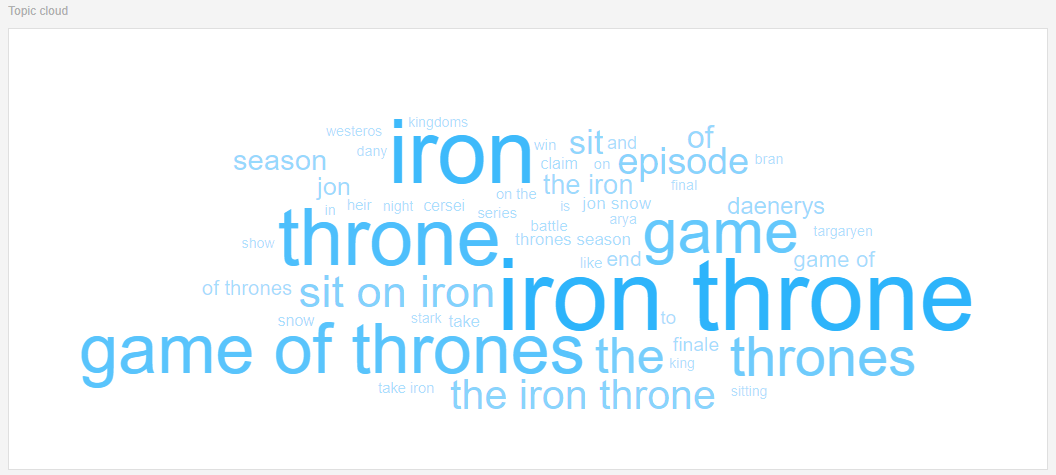
As we know, it was Bran who ended up on the throne. Well, on his own throne as the iron one was melted. This was the fans reaction:
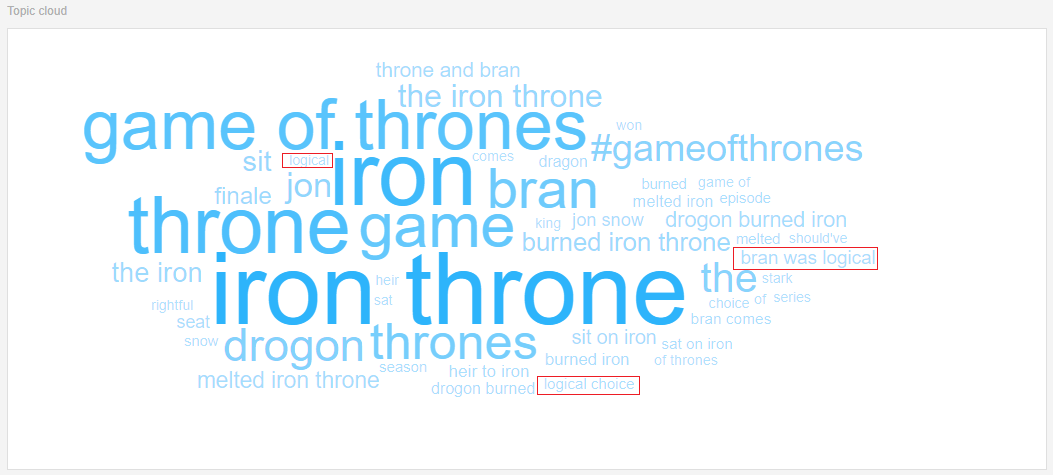
It's as if they always believed things would turn out this way.
The interesting thing about the Game of Thrones topic cloud is the fact that the only actor that was mentioned a lot was Sophie Turner, the one that played Sansa Stark. Others weren't mentioned a lot percentage-wise, even though they were praised a lot on social media and the web.
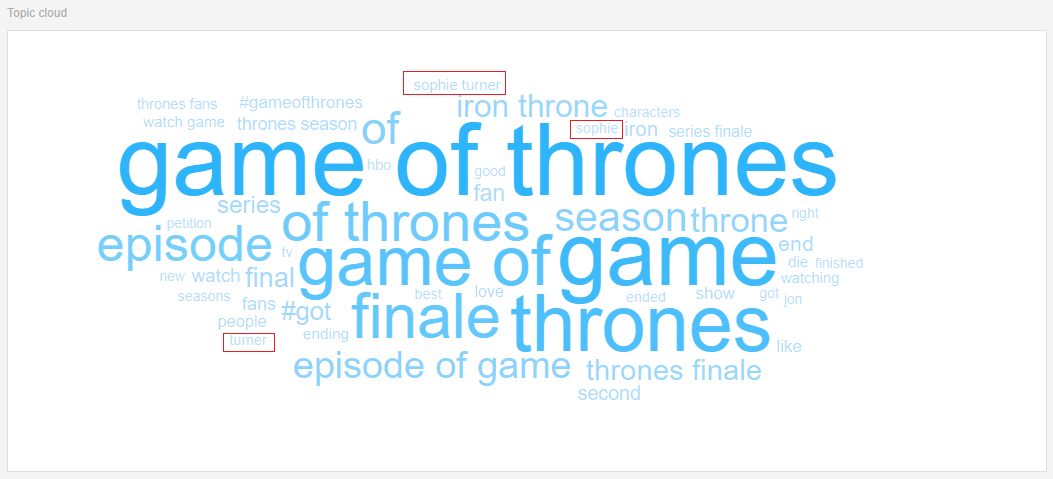
This might be because Sophie was the only one to react to the petition that demanded HBO to refilm the season. It might be also because the audience strongly felt that her character arc was the one that made sense the most and were happy to see her become the Queen of the North in the finale.
It's also important to point out that some brands made the most out of Game of Thrones - and it shows in the data. For example, Urban Decay's account is the one that is most mentioned on Instagram along the "Game of Thrones" keyword. All because of the makeup GoT-themed collection, which is a brilliant idea marketing-wise and the execution of which made fans of both Urban Decay and the series extremely happy.
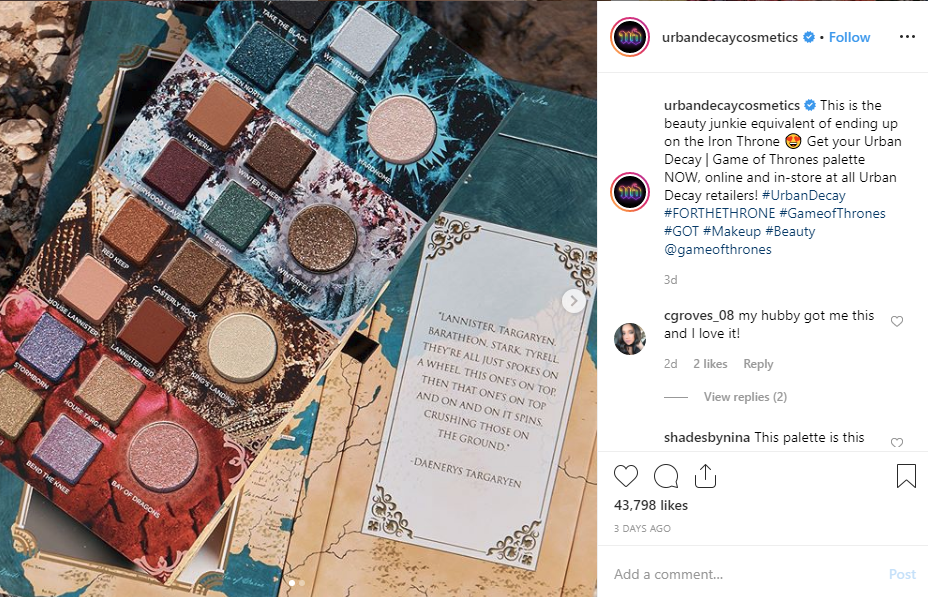
To find out what other brands and influencers mentioned Game of Thrones, we've sorted the mentions by Reach and ignored the major media channels. Turned out, everyone from the Kaspersky Lab to Neil DeGrasse Tyson, from Stephen King (early in the season)
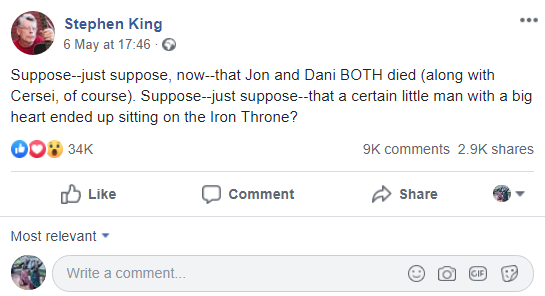
to the very popular social media figure - the Grumpy Cat (R.I.P) had an opinion.
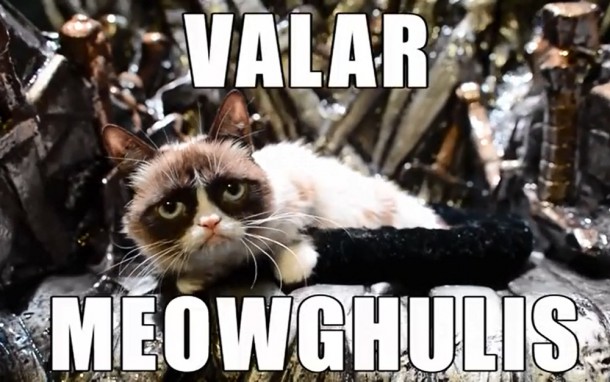
Some marketers also saw the finale as the opportunity to promote their industry.
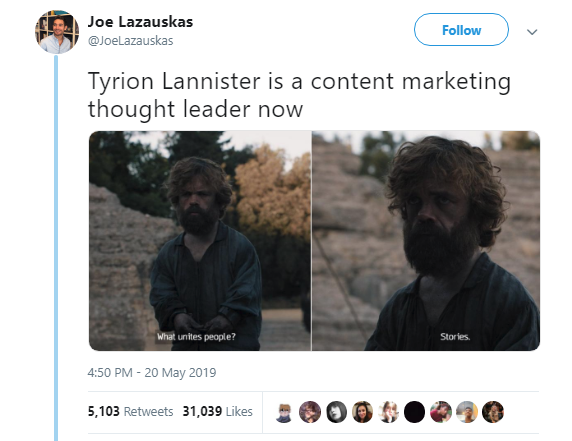
How great is that?
It's a pleasure to see how the show got the world talking. It's this current power of pop culture that can be only truly appreciated when you look at the data behind it.
How did you feel about the final season and the series in general? Share your thoughts: it's a safe space!













